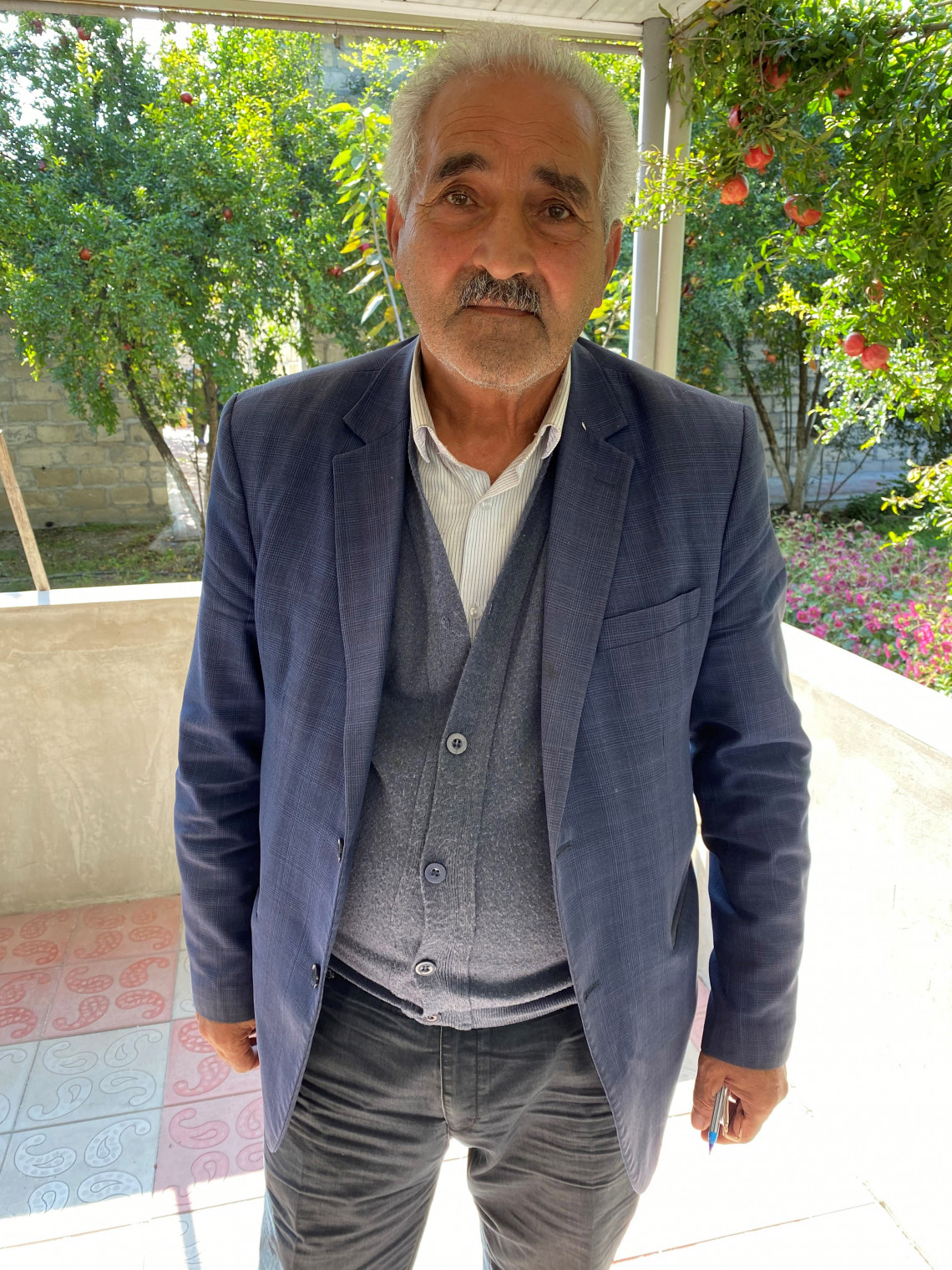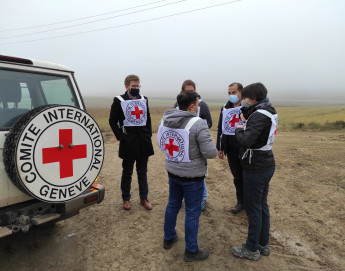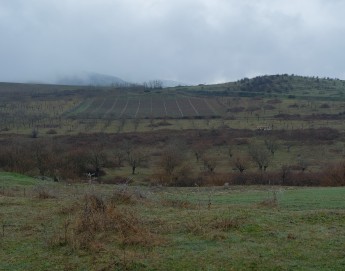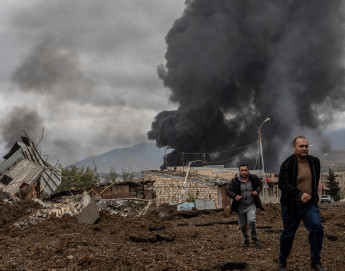
Nagorno-Karabakh Conflict: Lives Stormed by Psychological Suffering
A birthday that will live long in Narine's memory, for all the wrong reasons. The 29-year-old is sat in a kindergarten serving as a temporary refuge, recalling the moment war came to her front door.
I woke up to the sound of shelling and couldn't believe that war had erupted so suddenly," she said.
"We saw our neighbors running to the basement. We spent a few hours there and then decided to leave our town for safety. I managed to take only a few things with me. I don't believe life will ever be the same again."
Narine is among hundreds of thousands of people across the region who fled their communities. Homes and possessions gone in a split second.
The long-standing Nagorno-Karabakh conflict has inflicted suffering and loss on people since the 1990s.
On the morning of 27 September 2020, it escalated into a full-scale war along the line of contact and in populated areas. The escalation had a devastating impact on civilians with many deaths and life-changing injuries.
Hundreds of homes, school, hospitals and vital infrastructure such as roads, electricity, gas, and communication networks were destroyed or damaged by heavy artillery fire and by airborne attacks.

Unexpected and irreversible
While the violence ended in mid-November, many civilians are struggling to adapt to the new reality and to cope with losses. Hope, energy and motivation are in short supply.
"I came here with nothing but the clothes I'm wearing. My house has been destroyed. It's so hard for me to live like this, because I had everything in my house," said Maleyka, who had to flee her village and stay in a temporary shelter.

Muhammad, whose house has been damaged, is also coming to terms with the new reality. He said: "My chickens were killed, my trees were damaged, and cracks opened in my house's walls. I was very stressed."

In the aftermath of the fighting, women and men, young and old, have had to endure a painful journey – in both the physical and psychological sense. Finding ways to adjust to their new way of living is not easy.
"I don't see a reason to live further," said one lady, whose mother was killed in the shelling.
Nobody was as close to me as she was, always caring and supportive. Now that my mother is gone, my dad avoids entering our home and tries to keep himself busy outside. Our house is full of memories.
Many others feel guilty that they survived but their loved ones didn't or think they should have done more to protect their homes and families.
Another lady whose husband was killed while driving home for lunch said: "It is hard to accept my husband is gone. I am looking for him in the house and I want to believe that somebody tricked me, and he is alive."

Hundreds of families live with the memories of loved ones who are detained or missing. The ambiguity surrounding their fate is agonizing.
Families alternate between hope and despair. Exhausted and distressed relatives put all their efforts into the search for loved ones. They just want to find them as soon as possible, whether they are dead or alive.
Ani* hasn't had any news about the whereabouts of her youngest son since the first days of the war. Is he alive, injured or captured?
Every day she can hear him whispering and calling for support. "It's my way of coping: clinging to hope and trying to overcome the devastating pain and emptiness of sudden loss," said Ani*.
Long and uncertain journey
The escalation has also reignited painful memories of the conflict that uprooted lives 30 years ago. Many people who lived through that period are watching their children and grandchildren suffer the same consequences of war.
This is the second time Lida has fled war. The first time was in the 1990s when her husband was killed. She had to bring her four children alone.
Now Lida has twelve grandchildren and two great-grandchildren, the youngest one being just six-months-old.
"My grandchildren went to school only for ten days. One of them is in the first grade and he barely managed to learn the first letter of the alphabet," she said.

I decided I'd teach them so that they are not left behind. My biggest fear is that my grandchildren may grow up without a proper education. I want them to be successful.
Tears burn her eyes as her voice struggles under the emotion. Her hands tremble holding her grandchildren's notebooks where newly-taught letters are timidly written on tear-soaked papers.
"I don't want anything. Just peace, that's enough for me. I am tired of war after so many losses," she added.
Addressing psychological wounds
How will people overcome the memories of what happened? What will they remember from September 2020 when their lives were upended by violence? How long will it take to recover and heal the psychological wounds of these and other generations to come? These are all questions that the ICRC tries to address.
Across the region, the ICRC has provided mental health and psychosocial support to more than thousand families. Since the onset of the escalation, ICRC psychologists trained community volunteers to conduct emergency psychosocial sessions for children and youngsters. They also ran individual sessions for people traumatized by war.

An ICRC psychologist working in the region said: "It is almost impossible to imagine and describe the full scope of human suffering caused by war at the individual and community level.
We see people who have been uprooted, families of the wounded, killed, missing or detained. People whose life plans have been torn apart, people with uncertain futures, people who are traumatized
"Children's love of life has gone, along with their belief that the world is safe and fair.
"We try to design long-term programmes to help people recover from adverse or traumatic experiences and prevent serious mental health and behavioural problems.
"It is crucial to create a safe and secure environment, to normalize people's adverse feelings and physical reactions to the traumatic situation. We try to help them identify and strengthen ways to cope with the trauma".
"It's also important that we empower communities through our work, to give them the skills and resilience so they can help themselves and others in the future."
One in five people in conflict zones worldwide live with some form of mental health condition – from mild depression and anxiety, to post traumatic stress disorder and schizophrenia.
"Not all scars are visible. Mental health is just as important as physical health," said Milena Osorio, ICRC lead clinical psychologist, based in Geneva.
When not addressed, mental health and psychosocial needs have a far-reaching and long-term impact on people, their families, their communities and on the whole society.
"In emergency contexts across the world the ICRC is prioritizing mental health and psychosocial support by integrating it into our overall response. As these stories from the Nagorno-Karabakh region show, emotional scars run deep."

*Name changed.




